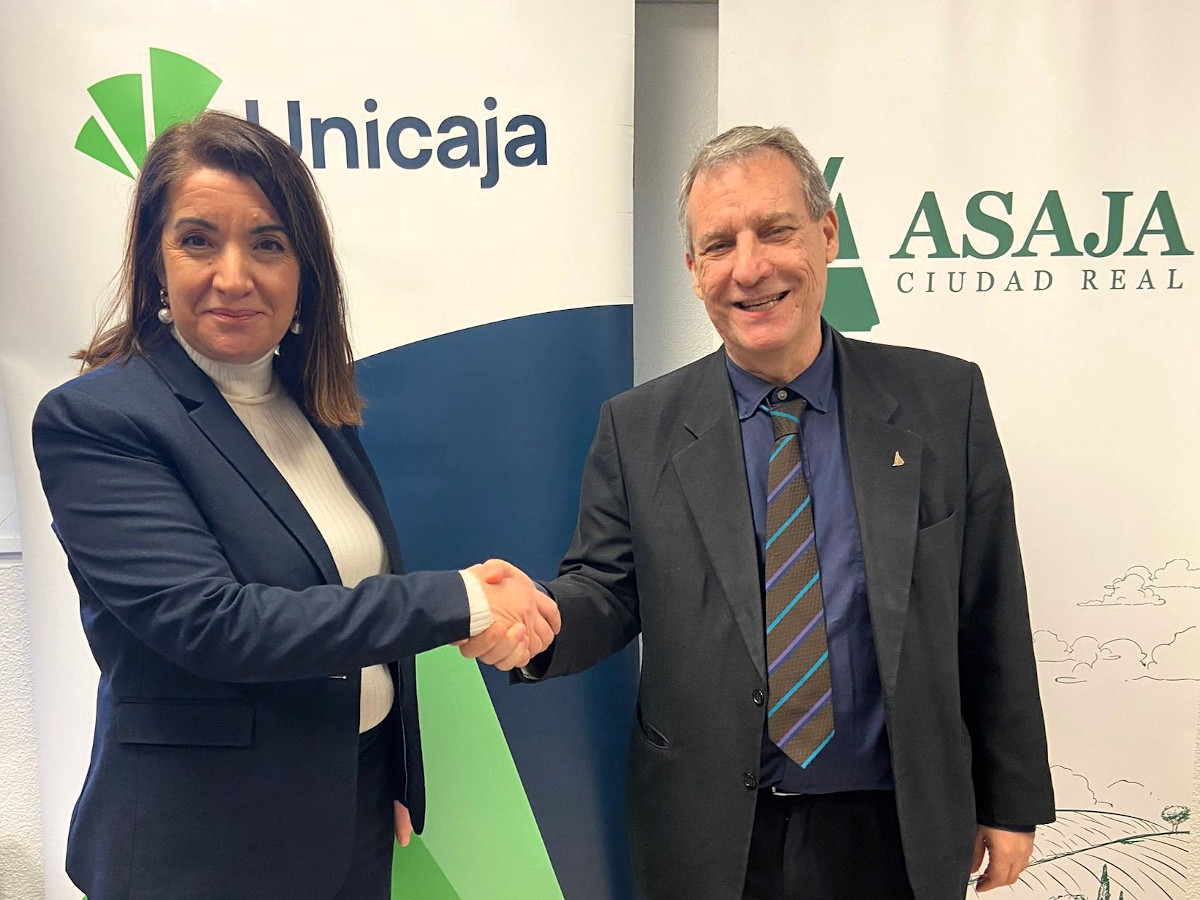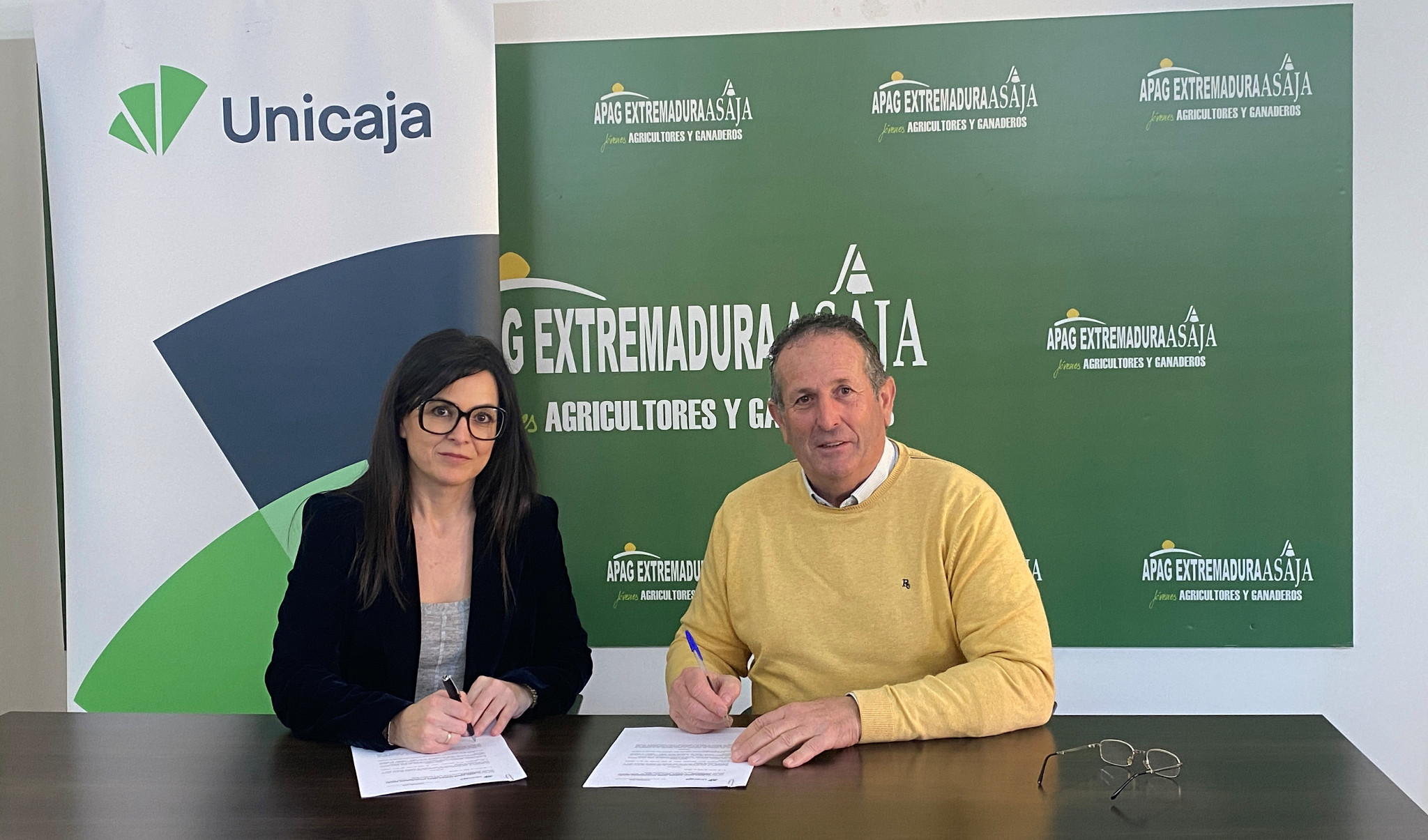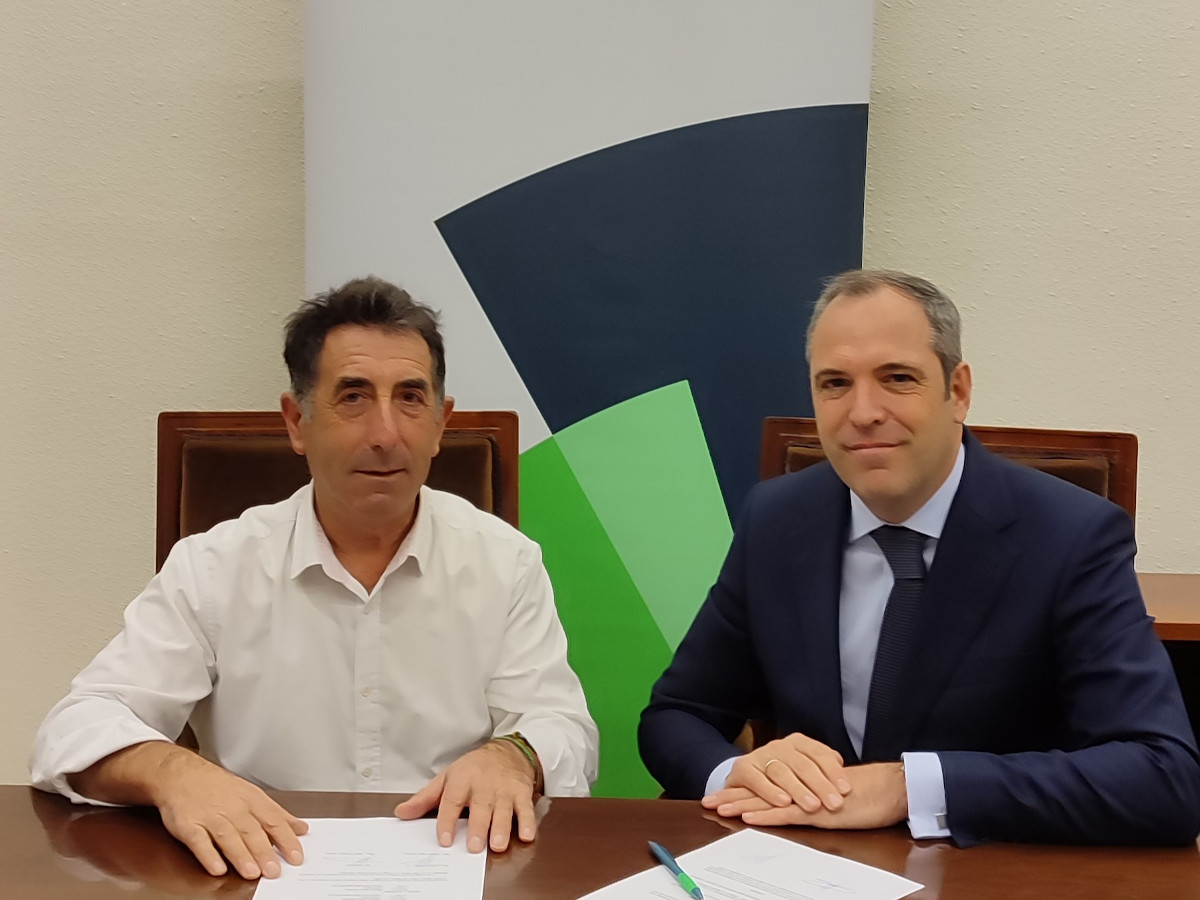Grupo Unicaja Banco posts in 1Q 2021 a net profit of €43 million, with an important effort in provisions, of which €25 million are considered as extraordinary provisions to strengthen the potential economic impact of the pandemic. Including those made in 2020 for this same concept, extraordinary provisions amount to €225 million at the end of 1Q. The main indicator of recurring business profitability, core margin, grows by 2.8% year-on-year, whereas core result is up 27.8%.
The key highlights of Unicaja Banco results in the first quarter have been: i) the improvement in core business profitability; ii) the growth in the business activity; iii) the ongoing decrease in operating expenses; iv) the decrease in non-productive assets, reinforcing the high coverage levels; and v) the high solvency and liquidity ratios, which reaffirm the bank’s strength to face the current situation, and to continue providing support to its customer in the current context of uncertainty.
Unicaja Banco has been able to improve its core margin (net interest income + fees), which grows by 2.8% compared with the same period of the previous year. The said improvement is seen both in the net interest income (+3.6%) and in fees (+0.9%).
On the other hand, cost containment remains one of the pillars of the banks’ management, with a reduction in operating expenses of €9 million year-on-year (-6.1%). All of the above has made the bank to improve its core result (net interest income + fees – operating expenses) by 27.8% in year-on-year terms. Despite the delay in the economic recovery after the pandemic, Unicaja Banco has been able to continue reducing its NPAs, while significantly increasing the high level of coverage. Likewise, its liquidity and solvency positions have continued to improve compared with the same period one year before, with the Loan to Deposit (LTD) ratio standing at 64.2% and the CET-1 and Total Capital ratios amounting to 16.5%1 and 18.0%1 respectively, with the latter presenting a surplus of €1,283 million above the SREP requirements.
In this scenario, Unicaja Banco continues, as it has been doing since the start of the pandemic, providing support and responding to the needs of individuals, businesses and the self-employed, and especially to the most vulnerable groups, by adopting flexible measures and solutions, participating in the implementation of the Government and sectorial initiatives, developing its own measures and boosting several action protocols to ensure the service and to reinforce the protection and safety of customers and employees. So far, the bank has approved more than 13,000 ICO-backed loan applications, from freelancers and business, for a limit of c. €1,000 million, and it has processed more than 24,000 moratoria applications –both legal and sectorial and for mortgage and personal loans- for an approximate credit volume of €860 million, with only c. €580 million with outstanding moratoria.
Results generation capacity
In the uncertain existing economic context caused by the COVID-19, Unicaja Banco continues in 2021 focused on reinforcing its good starting position, booking new extraordinary provisions (€25 million in 1Q2021, €225 million including those made in 2020), to provide additional coverage to the impacts that the pandemic may have on its lending portfolio, and also implementing a prudent classification of transactions into stage 2, making the net profit for the quarter to stand at €43 million. This result, without the said extraordinary provisions, would have reached €53 million, involving a ROE (return on equity) of 5.4%.
The key factors behind those results are the improvement in the core margin, up 2.8% compared with the same period of 2020, as well as the ongoing effort to contain expenses.
In line with the above, the net interest income has grown by 3.6% year-on-year, with an improvement in funding costs both in retail and wholesale. It is worth to remark the decrease in retail costs in the last twelve months, as high yield deposits mature, which will continue until mid-2021. This has contributed to offset the negative impact that the decrease in market rates is having on financial revenues from lending, consolidating the improvement of customer spread registered in the second half of 2020.
Additionally, fees increase by 0.9% year-on-year, boosted by payment and collection services, which offset the year-on-year decrease in fees from the sale of non-banking products, which were extraordinarily high in the first quarter of 2020.
Another key topic in this quarter’s management has been the containment and reduction of operating expenses, reinforced since the start of the pandemic and which has resulted in a y-o-y reduction of 6.1%. With all the above, the bank’s core result has grown by 27.8% year-on-year, from €53 million in 1Q2020 to €68 million in this quarter.
Unicaja Banco continues to prudently increase the coverage levels of its lending portfolio, with a rigorous policy of reclassification of transactions to stage 2 and to underperforming for subjective reasons, which increases the recurring cost of risk, as well as with the creation of extraordinary additional coverage that take into account the uncertainties related to the impacts of the pandemic. In that line, the net loan impairments made in 1Q2021 involve a cost of risk of 52 basis points (bps), of which 16 are recurring and the rest includes extraordinary provisions to cover additional potential effects of the pandemic.
Boost to the commercial activity: growth in lending and customer funds
The Group’s commercial activity continues improving quarter by quarter since the eruption of the pandemic. In this line, new lending to the private sector has grown by 38% in the first quarter, both in individuals and corporates. The 39% growth in lending to individuals reaches the highest quarterly production levels in the last two years, and the 36% growth in lending to corporates exceeds in 88% the average production of the second half of 2020, but without reaching pre-COVID levels. This increase in production has allowed the bank to register a slight net increase (0.1%) in performing credit to the private sector with regard to the end of 2020, while the total performing credit to customers remain at the same levels as those of the end of last year.
Customer funds have grown by 1.3% in the first quarter of 2021, taking the year-on-year variation to 9.6%. The increases are registered both in on-balance sheet customer funds (1.4% in the quarter and 9.8% y-o-y) and in off-balance sheet funds and insurances (0.8% in the quarter and 8.9% y-o-y). By products, the following increases are to be mentioned: public Administrations (4.2% in the quarter and 15.6% y-o-y), private sector sight deposits (2.3% in the quarter and 16.5% y-o-y) and investment funds (2.9% in the quarter and 13.9% y-o-y).
Ongoing reduction in NPAs, with high coverage
The bank has been able to continue with a sustained reduction of NPAs (NPL plus foreclosed real estate assets), although at a slower pace than in previous periods. With a €17 million decrease in the first quarter of the year, the accumulated reduction over the last twelve months amounts to €208 million (8.4%), with decreases of -11.3% in NPLs and of -5.1% in foreclosed assets. The Group’s balance of NPLs, at the end of 1Q2021, stands at €1,184 million and that of foreclosed assets, at €1,072 million. The fall in NPLs results in a decrease in the NPL ratio of 0.5 p.p. in the last twelve months, down to 4.2%.
The substantial increase in the already high coverage levels is to be remarked. The NPA coverage ratio has increased by 6.8 p.p. year-on-year and by 0.7 p.p. quarter-on-quarter, standing at 65.9%. The said increase is due mainly to the extraordinary provisions made to cover the foreseeable negative consequences of the pandemic on asset quality, as well as to a prudent policy of identification of underperforming for subjective reasons and reclassifications to stage 2.
Consequently, the balance of NPAs, net of provisions, stood at €769 million, what represents only 1.2% of the Group’s assets as at the end of the first quarter of 2021, with a 0.6 p.p. decrease over the last 12 months.
Strong solvency levels and comfortable liquidity
In terms of solvency, as at the end of the first quarter of 2021, Grupo Unicaja Banco has reinforced its position, having a CET-1 ratio of 16.5%1, and a total capital ratio of 18.0%1, both among the highest in the sector and with a year-on-year increase of 1.1 and 1.2 p.p. respectively. This involves an excess over the SREP total capital requirements of €1,283 million.
In fully loaded terms (according to the calculation once the transitional period of the solvency regulations has expired), Unicaja Banco has a CET-1 ratio of 15.1%1 and a total capital ratio of 16.7%1. These represent a year-on-year increase of 1.0 and 1.1 p.p. respectively.
The positive levels of coverage, solvency and balance sheet quality are also reflected in a further improvement of the Texas ratio (indicator measuring the percentage of NPLs and foreclosed assets over TBV plus NPL and foreclosed assets provisions). This ratio stood at the end of March 2021 at 42.8%, improving 3.1 p.p. in y-o-y terms.
Unicaja Banco maintains solid liquidity positions, as well as a high degree of financial autonomy. In this sense, the available liquid assets (public debt mainly) and discountable at the ECB, net of the used assets, amount to €17,395 million as at the end of March 2021, representing 26.6% of the Group’s total balance sheet. Likewise, customer funds with which the company finances itself exceed largely its lending, as reflected by the loan to deposit (LTD) ratio, which stands at 64.2%. Finally, the regulatory LCR ratio, which measures the volume of available liquid assets over net cash outflows over a 30-days period, stands in March 2021 at 286%, equivalent to practically three times the regulatory limit, set in 100%.
The existing capital and liquidity surplus place Unicaja Banco in a solid position to face the uncertainties posed by the evolution of the pandemic and allow the bank to continue playing a significant role in supporting its customers.
Advances in the merger process and dividend distribution
The Extraordinary General Meetings of Shareholders of Unicaja Banco and Liberbanka approved on 31 March the merger transaction under which Unicaja Banco will absorb Liberbank. Unicaja Banco General Meeting also gave the green light to the composition of the new Board of Directors post-merger, which will have 15 members. The support of both banks’ shareholders, within the scheduled calendar and following the preparation of the Common Draft Terms of Merger by the Board of Directors of both banks on 29 December 2020, is a decisive step in the transaction, which will result in the fifth Spanish bank by assets volume.
With regard to the process calendar, after the approval by the general meetings of both banks, the transaction is subject to obtaining the required regulatory authorizations, expected to be received in late 2Q or early 3Q, as announced. Once the conditions precedent have been met and the merger has materialized, the exchange will take place and the operational integration of both institutions will start.
Under this transaction, Liberbank shareholders will receive 1 newly issued ordinary share of Unicaja Banco for each 2.7705 Liberabank shares. As per the agreed exchange ratio, Unicaja Banco shareholders shall hold 59.5% of the combined entity’s capital and Liberbank, 40.5%.
Likewise, the Annual General Meetings of shareholders of both banks also approved on 31 March their respective 2020 accounts, the Board of Directors’ management and the dividend distribution, under the framework of the supervisor’s recommendations and in light of the balance sheet quality and solvency position of Unicaja Banco and Liberbank.
Specifically, the Annual General Meeting of Unicaja Banco approved a dividend distribution of €16.91 million, structured in two tranches (one of €11.54 million to be paid prior to the registration of the merger deed and a one of €5.36 to be paid after the said registration). The Annual General Meeting of Liberbank resolved to distribute dividends with a charge to 2020 profit for an amount of €7.86 million.
Boost to digital banking with focus on the customer
During 1Q2021, Unicaja Banco has continued working in the development and implementation of its Strategic and Transformation Plan 2020-2022, which includes, inter alia, transformation and commercial dynamism plans designed with focus on the customer.
The number of digital customers (web and app) represented 54.8% of the total as at the end of the first quarter of 2021. With regard to the channels used by customers, of the total of financial transactions and consults made, the highest weight corresponded to digital transactions, both via web and app (58% of the total), 20% were made through PoSTs, 17% at branches and 5% at ATMs.
During the first quarter, the total connections of customers via digital channels increased by 27% compared with the same period of 2020. The total of transactions grew by 38% compared with the same period of 2020. The total amount of transactions over digital channels experienced a 10% growth in y-o-y terms.
Furthermore, the number of Bizum customers grew by 122% y-o-y, with a 372% increase in transactions and 309% in transactioned amounts.
After the launch in November 2020 of Unicaja Banco’s new digital banking, the bank has continued to expand its commercial and functional capabilities.
Likewise, in the first quarter of 2021, the bank has implemented several initiatives for a better customer service, such as the programme to assess the Internal Service Quality 2020 or the incorporation of processes in the Customer Voice programme Unicaja Escucha, to get the customers’ opinion.
In the area of innovation, the bank has continued with the deployment of virtual assistants to improve efficiency. In fact, it now has a chatbot for employees, to provide information about a certain line of products, and new use cases have been identified. This technology has also been used to validate and quantify the improvement in the sale and customization of product and service campaigns.
The bank has continued working on co-innovation labs, together with potential tech and business partners (corporates, fintechs and startups), to analyze new ways to make the daily transactions more efficient or to boost new value proposals for customers.
Online sale of insurances and mortgage simulator
As it has been said before, Unicaja Banco has started the online sale of home insurances (Caser’s Seguro Hogar Protección), as it does with Unicorp Vida’s accident insurance (Unicorp Vida is an insurance company held at 50% by Unicaja Banco and Santalucía). The subscription process can be made through Unicaja Banco digital banking (web and app) in an easy, agile and intuitive manner.
With the aim of making easier for customers to get financing for their homes, Unicaja Banco has included a new mortgage simulator on its digital banking. The tool, which allows users to make queries to a remote manager and to save the simulation customized information, shows the parameters adjusted to each profile and the most advantageous option according to their needs.
Support to individuals, freelancers and businesses to face the COVID-19
Since the outbreak of the COVID-19 pandemic, Unicaja Banco has implemented a set of actions to reactivate the economy and to provide support to families and businesses. In that sense, during the first quarter of 2021 the bank has continued to take part in the measures to provide liquidity and funding with the guarantee of the State, of the Junta de Andalucía, Junta de Castilla y León and specialized companies.
So far, the bank has approved more than 13,000 applications from freelancers and businesses for ICO-backed loans, for an approximate amount of €1,000 million, and more than 24,000 moratorium applications for mortgage and personal loans, both legal and sectorial, have been processed, for an approximate amount of €860 million, of which only c.€580 million maintain the moratorium in force.
In order to help those in a situation of vulnerability and to adapt to the needs of customers, Unicaja Banco has brought forward the payment of pensions and unemployment benefits, and the holders of life and accident insurances have the possibility to split the payment of insurance premiums at no cost.
Sustainable finances
Unicaja Banco has continued to develop actions in the exercise of its Corporate Social Responsibility (CSR) and sustainable and responsible banking in the first quarter of 2021, such as:
- Advances in the implementation of the Action Plan on Sustainable Finances, such as the launch of a training plan on sustainable finances addressed to all Unicaja Banco staff.
- Approval of three new policies on sustainability: the Sustainability Policy, which states the Group’s positioning with regard to sustainable finance; the Policy on Environment, Energy and Climate Change, to set the basic action principles with regard to environment, energy efficiency and climate change, and the Policy on the integration of sustainability risks in the decision-making process and in advice on investment and insurance products.
- Review of the Group’s CSR Policy, which sets the basic action principles to create value in a sustainable manner among the stakeholders. Additionally, the CSR section on the corporate website is now called Sustainability and Corporate Social Responsibility.
- The Consolidated Non-Financial Information Statement for 2020 has been published on the corporate website. This report includes the main actions and indicators related to environment, social and governance, and to CSR.
- Unicaja Banco and the Smart City Cluster have entered into an agreement to boost initiatives to promote smart cities.
- The bank has entered into a new collaboration with Fundación Adecco to boost the development of employability activities for women in risk of social inclusion and with difficulties to enter the job market.
- The Edufinet Project on financial education has continued developing its activities online. The 12th Conferences on Financial Education for Young People have concluded with a participation of nearly 7,000 students. Additionally, Edufinet and the International Training Center for Authorities and Leaders (Cifal) Malaga, part of UN’s UNITAR agency, have organized, within the framework of the Global Money Week, a webinar on the importance of sustainable finance.


